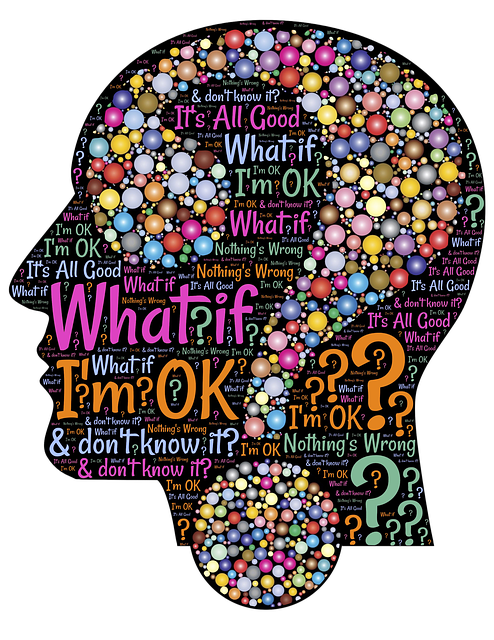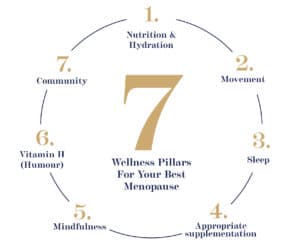A panic attack.
If you’ve never had one count yourself lucky, but bear in mind that no one is immune.
We’ve been travelling through trying times with a pandemic and cost of living crisis so if you were ever going to have a panic attack or suffer from ‘anxiety’ the time is now! And it’s doubly challenging if you’re going through perimenopause / menopause.
So, let us say right here: You. Are. Not. Alone.
To that end, do you need a sounding board? Don’t hesitate to reach out to us.
What is a panic attack?
A panic attack comes on suddenly and is a very intense feeling of fear and anxiety. As a result, it can be overwhelming and lead to difficulty breathing. Additionally it can trigger a pounding heart and a need to get away or out of wherever you are. Quickly.
That’s a pretty broad overview because just like our peri/menopause journey, a panic attack affects everybody differently. While some people feel like they’re going pass out or experience chest pain, others perspire. And trembling isn’t unusual.
5 ways you can help yourself during a panic attack?
There are some simple strategies you can put in place to help you through. Here are five tried and true tools:
1. Breathe
This is my personal go-to for panic attacks (and anxiety). I picked it up from Dr Andrew Weil (video of him explaining 4-7-8 breathing below). In my experience, it works quickly and effectively.
- Exhale all of the air out of your lungs
- Breathe in for four counts (deeply into your diaphragm)
- Hold for seven
- Blow out through your mouth for eight
Do this several times until you feel yourself calming down. What’s more, there is plenty of research to back up the positives of deep breathing. (1)
Dr Weil demonstrates the technique in this video
2. Don’t panic that you’re panicking

Although this might sound like a tall order, fighting with your ‘inner mean girl’ while you’re trying to calm down won’t help the situation. We all have her, the voice in our head that beats us up at various times.
And it’s OK to feel what you’re feeling. Subsequently, acknowledge what’s happening, and try and take stock. Of course, if you’re in a crowded room remove yourself if you can. And if you’re driving pull over, and sit or lie down if you feel the need then commence your breathing strategy.
3. Learn to meditate
While meditation was once thought of as woo woo it’s becoming more and more mainstream. Indeed, most people are aware there is plenty of science-based evidence to back its positive effects.
The continued practice of daily meditation will help you navigate your day in a healthy, calm way. As a result, you’ll see things more clearly. There’s a multitude of providers online so you can learn and practice in the comfort of your own home.
Deepak Chopra’s centre has some great offerings. In addition the Calm and Headspace apps are wonderful.
4. Engage mindfulness
Mindfulness is the practise of being present in the moment and will help stabilise and ground you. We’ve written about it here. This study is helpful too (2).
Essentially, it’s a very simple tool. Moreover, it promises to be very helpful during difficult times.
5. Make friends with a mantra
Wikipedia defines a mantra as a sacred utterance, a syllable, a word or group of words in Sanskrit. Mantra’s are believed by practitioners to have psychological and/or spiritual powers.
The mantra originated in India thousands of years ago and is still widely practised in the ancient language of Sanskrit. If ‘om’ sounds familiar, it’s a simple, well-known example. In modern times some of us take a little poetic license and use a group of English words that work for us to create our own ‘mantra’.
Effective words can be: “I am…(fill in the blank”) i.e. relaxed. Additionally, “this too shall pass”, “all is well” and “I feel calm” fit the bill. The reason they work well for anxiety and panic attacks is that they focus the mind override your ‘inner critic’.
Summary
Overall, some basic self care techniques may also help you get through. These include regular exercise and eating nutritious whole foods (overly processed foods don’t make us feel good).
And if getting outside for a walk doesn’t cut it there are some amazing offerings online such as Yoga with Adriene and Walk At Home with Leslie Sansone.
We’d also recommend taking time out just for you. The website donothingfor2minutes.com is the perfect bookmark.
And don’t forget that Merry Peri® and Perky Post® can support your moods, depression and anxiety. Indeed, many women find that taking them gives them a sense of calm.
Take care and reach out if we can be of any help.
2. Lindsay Maxwell, Elsie Duff, Mindfulness: An Effective Prescription for Depression and Anxiety, The Journal for Nurse Practitioners, Volume 12, Issue 6, 2016, Pages 403-409, ISSN 1555 4155, https://doi.org/10.1016/j.nurpra.2016.02.009.
Main Photo by Priscilla Du Preez on Unsplash







 Body-smart support for your stage of life
Body-smart support for your stage of life